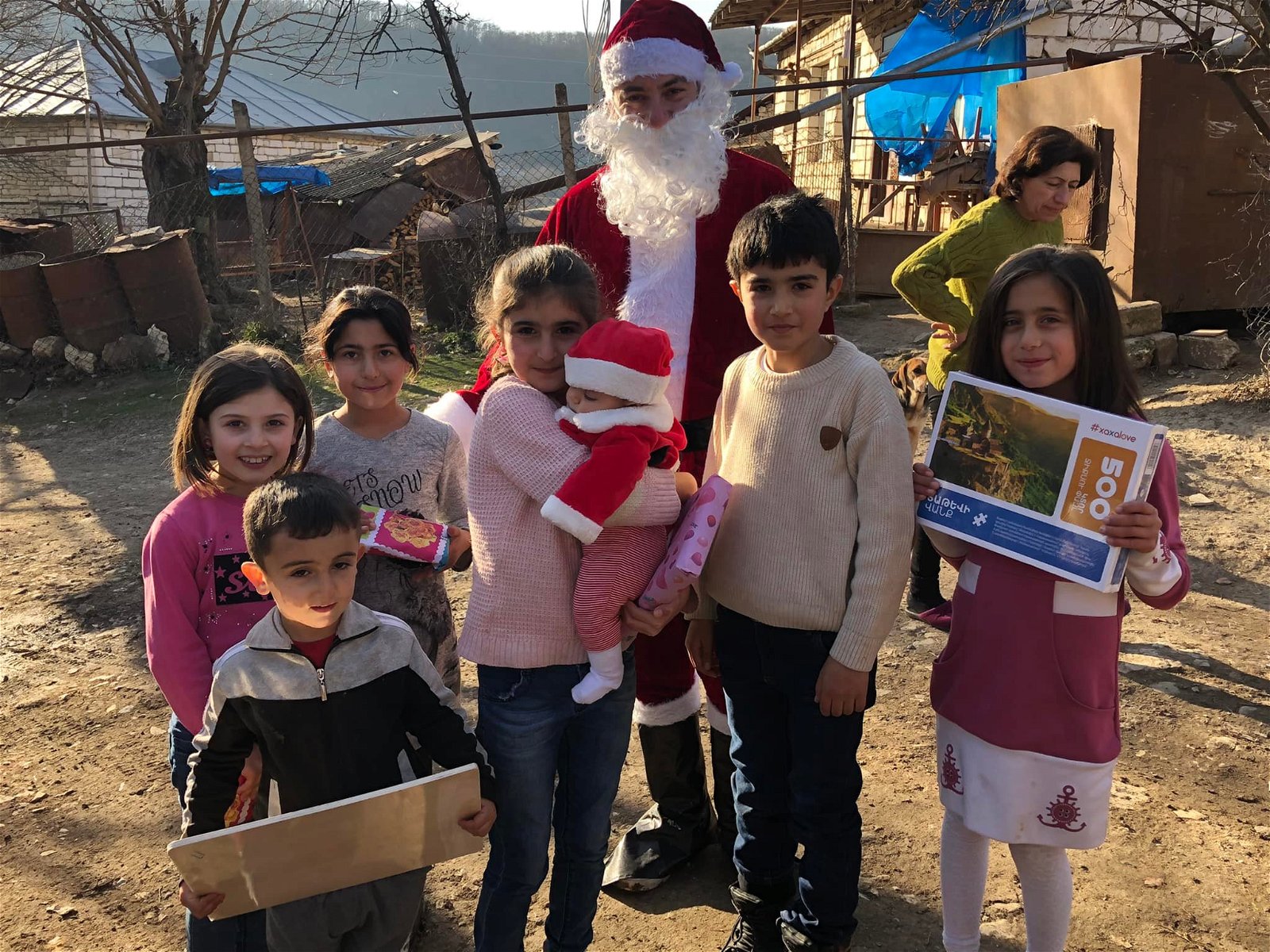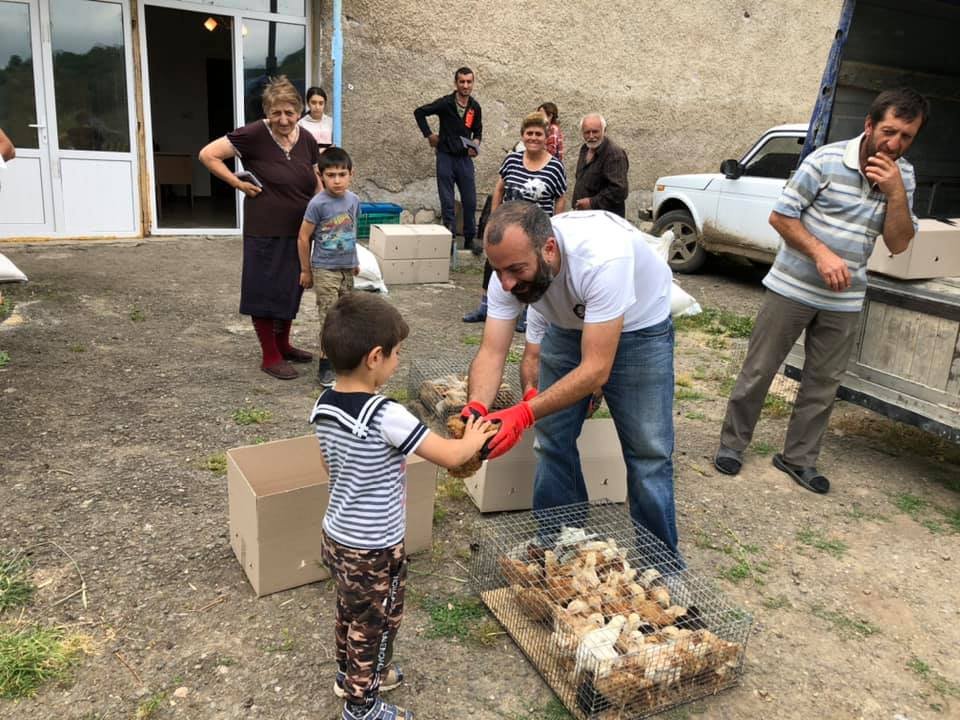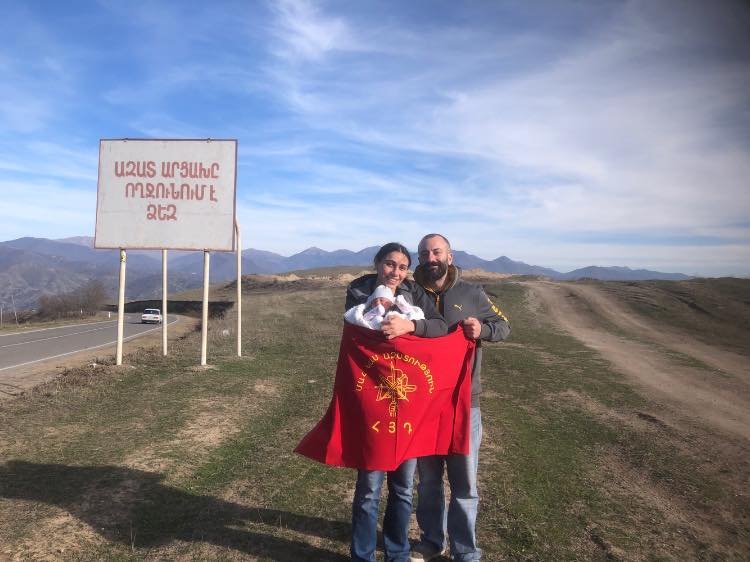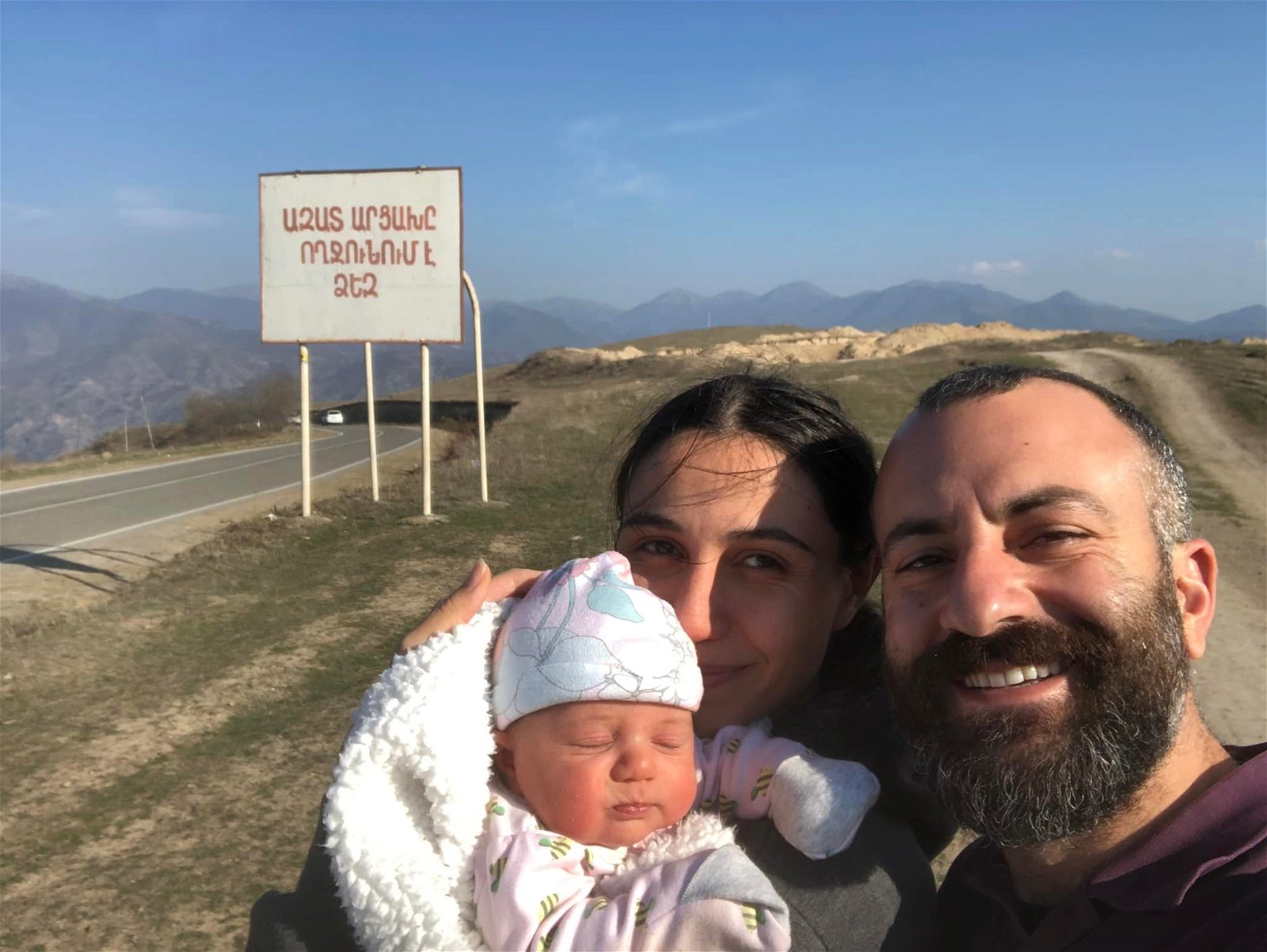
When Shant Charshafjian was handing out Christmas presents to the children of Martuni dressed as Santa Claus, I immediately began reminiscing about my childhood. After the first Artsakh war of 1988-1994, and every year since then, Christmas presents were sent to the children of Artsakh from different countries. This gesture was the biggest and happiest moment for those children who lived in the doom and gloom of the 90s. I still remember the gift boxes, pencils, warm gloves, and letters written in a foreign language that we could not read or translate, but still, there was so much love and warmth in them.
Charshafjian is a young American Armenian who moved from Los Angeles to Artsakh just before the start of the 2020 Artsakh War. During the war, he collected and distributed material resources to soldiers on the front lines. In its aftermath, he immediately implemented a number of programs for assisting the people of Artsakh and continues to do so to date through the Lorik Humanitarian Fund.

Through this program, more than 400 families of the victims of the Artsakh War were provided with chickens and feed. Charshafjian also set up greenhouses for the villagers and provided necessary equipment for local kindergartens and athletic programs. He has organized tours of the Puppet Theater of Shushi for the children in the border villages of Artsakh and Armenian dance lessons.
However, out of all these programs, the distribution of Christmas presents to the children of Artsakh has a special significance. Together with his wife Marine and newborn daughter Maral, they hand-delivered gifts to almost 4,000 young children in more than two dozen settlements of the Martuni region. Charshafjian is also an ethical person when it comes to choosing gifts as he mainly chose Armenian-made toys, educational games and books, in order to support the local economy.
When you ask about the program, Charshafjian’s eyes shine. “Every time I give a gift, I receive a gift,” he says. “Seeing their smiles makes you understand that Artsakh has a future generation who deserve the best childhood and deserve that joy.”
Charshafjian believes that by giving to the children he receives the same joy from them. Diasporans, who supported the funding of these gifts, also find joy in this humanitarian effort as they follow Charshafjian’s posts on social media documenting their delivery.
“For many in the Armenian Diaspora, Artsakh is an abstract idea, a battlefield, and a place of losses, but I want them to come and take a look at the children living in Artsakh,” said Charshafjian. “Because every time you see those children, that fire burns brighter within you.”
However, Charshafjian believes that this support should not only be a material one. He believes that the people of Artsakh must remain in their villages, since they are tied to their lands and want to keep them.
Charshafjian is confused when he receives questions about repatriation. “We owe it to our ancestors, the ones who survived the Genocide,” he says. “They could have forgotten about their history and faith, their language and assimilation, but they did not. They grew up in orphanages, became craftsmen and specialists. Why is this not the time to have a more prosperous life and have a greater opportunity? If Nikol Duman came from Artsakh to protect Western Armenia from the extermination of her compatriots, to fight, why shouldn’t have I come? We owe it to our ancestors, martyrs, and to our compatriots.” Charshafjian encourages Diasporans to consider repatriation and apply their knowledge and skills to help their homeland.
Charshafjian speaks proudly about his national upbringing and patriotic spirit, which he received from his family, his Armenian school education, the Armenian Revolutionary Federation (ARF), the Armenian Youth Federation (AYF) and Homenetmen.

Charshafjian believes he and his wife were called to live in their homeland. “We have a homeland, either good or bad, wounded, but it’s still our homeland. The farmer does not plant the tree in the neighbor’s garden, but in his own land, even if that land is not fertile. The same applies for a foreign country, where even if there is abundance, every next generation moves further away from its Armenian roots, living in danger of forgetting their culture. This is our country; we have lived here for centuries. We must create and develop our homeland by discovering the country and by learning its history.”
The Charshafjians welcomed their daughter in the homeland last year, which was a symbolic milestone for the young couple. “We must live and create a better place for Maral and all the other children of Artsakh, and I hope the avenging generation will grow up. When I say avenger, I do not mean with weapons, but we will take revenge with knowledge, developing knowledge and relying on our own strength, strengthening the country. That will be our revenge.”




What an amazing story… Thanks Siranuysh, for letting us know about this incredible couple from Los Angeles.
Thank you for this heart warming story! Bravo, Unger Shant! What you and your family are doing is truly important and so appreciated!